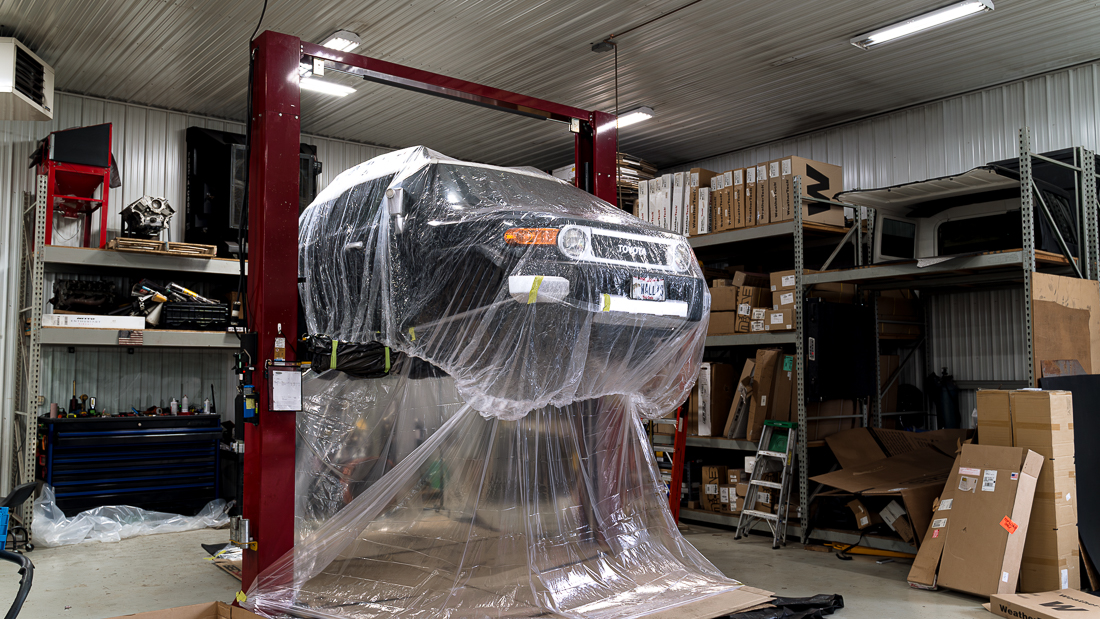
Undercoating
Schedule Service
Safeguard Your Vehicle With Quality Undercoating
The undercarriage of a vehicle is particularly vulnerable to corrosion due to its proximity to the road surface and constant exposure to harsh environmental elements, such as rain, snow, and road salt used for ice melting. Undercoating helps to create a barrier between the metal components of the undercarriage and these corrosive elements, preventing rust and prolonging the lifespan of your vehicle.
This protective layer also helps to reduce noise and vibration from the road, providing a smoother and quieter driving experience. We only use high-quality undercoating products that are specifically designed to withstand the harsh conditions encountered on the road, including salt, moisture, and debris. This ensures long-lasting protection for your vehicle's undercarriage, prolonging its lifespan and preserving its resale value.
Invest in an Extra Layer of Protection
-
Corrosion Protection
Undercoating provides a durable protective barrier against corrosion and rust by shielding the underside of your vehicle from moisture, salt, road debris, and other corrosive elements commonly encountered on the road. Not only can this keep your vehicle from corroding, but it can keep certain parts in well working order by keeping them from corroding.
-
Noise Reduction
Undercoating can help dampen road noise and vibrations by adding an additional layer of insulation to the underside of your vehicle, resulting in a quieter and more comfortable driving experience.
-
Extended Vehicle Lifespan
By preventing corrosion and rust from forming on critical undercarriage components such as the frame, suspension, and fuel lines, undercoating helps extend the lifespan of your vehicle, reducing the risk of structural damage and costly repairs over time.
-
Resale Value Preservation
Vehicles with well-maintained undercoatings are often more attractive to potential buyers due to their enhanced protection against corrosion and rust. As a result, undercoating can help preserve the resale value by maintaining its structural integrity and appearance.
Common Undercoating Questions
How often should I have my car undercoated?
The frequency of car undercoating depends on factors such as the climate, driving conditions, and the type of undercoating product used. Generally, it's recommended to have the undercoating inspected annually and reapplied as needed to maintain optimal protection against corrosion and rust.Will undercoating prevent existing rust from spreading?
While undercoating can help prevent new rust from forming by creating a protective barrier, it may not stop existing rust from spreading. It's essential to address any existing rust through proper cleaning, treatment, and repair before applying undercoating for the best results.Can undercoating be applied to older vehicles?
Yes, undercoating can be applied to older vehicles to help protect against corrosion and rust. However, it's crucial to ensure that the undercarriage is thoroughly cleaned and any existing rust is addressed before applying the undercoating for optimal adhesion and effectiveness.Is DIY undercoating as effective as professional services?
While DIY undercoating kits are available, professional undercoating services often offer higher-quality products and application techniques, resulting in better protection and longevity. Professional technicians have the expertise and equipment to ensure proper coverage and adhesion, leading to more effective corrosion prevention.
Contact form
Contact Form Services




